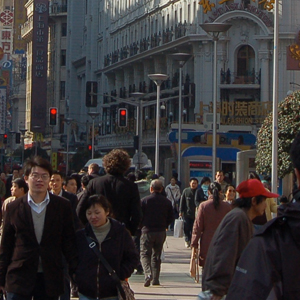Preparing For Your Trip
Be Ready For Tech Adjustments
While China’s infrastructure and technology are advanced in many ways, some popular global platforms like Google and Facebook are blocked in the country. Make sure to download useful Chinese apps like Baidu Maps and WeChat before your visit to navigate and communicate easily once there. Signing up requires a Chinese phone number, so you may want a temporary local SIM card.

Familiarize Yourself With The Language
Even if you don’t become fluent, learning some basic Mandarin phrases will serve you well for things like ordering food or asking directions. Apps like Hanping can help in a pinch for translating needs while traveling. Be sure to have addresses and important information written out phonetically in Chinese characters too in case you find yourself somewhere without data access. Pictures are also very helpful for communicating non-verbal needs.
Research Transportation Options
Taxis seem convenient but can lead to overpaying if you don’t negotiate fares upfront. The Didi ride-hailing app is a reliable alternative with set prices when using a local SIM. Be aware taxis may use different light signals depending on availability too. Walking ability maps and noting nearby metro stations in advance aids independent navigation of large cities.
Know What To Expect Culturally
Be Respectful Of Cultural Norms
While overall very safe, aloofness can be misinterpreted so smiles and greetings go a long way in China. Taking photos of people requires permission. Crowds may form just to see a foreigner too. Spitting in public is commonplace even if unappealing to some visitors. Being aware prevents unintended offense of local customs.
Avoid Sensitive Discussion Topics
Politics, religion and Taiwan/Tibet/Tiananmen Square should not be brought up in conversation without understanding the social context first. Chinese history lessons focus heavily on national pride, so what seems innocent curiosity could easily backfire if discussing controversial modern events without tact.
Adapt To The Pace Of Life
Schedules tend to be flexible in China versus strict timekeeping in Western cultures. Meals take time to savor, crowds move slowly and queues resemble more of a mob scene than an orderly line. Going with the flow helps reduce travel stress versus frustration over perceived inefficiency.
Prepare For Daily Life Practicalities
Bring Adequate Medications/Supplies
Pharmacies offer over-the-counter drugs galore but prescriptions require seeing a Chinese doctor, which poses a language barrier. Bring refills of maintenance prescriptions, painkillers, sanitary supplies, sunscreen etc. to avoid reliance on charades at a hospital. International clinics catering to expats offer an alternative if healthcare is needed on trip.
Food Is Affordable But Potentially Adventurous
Street vendors, holes-in-the-wall and market stalls provide tasty budget-friendly dining options. Ordering unknown items sight-unseen adds an element of surprise versus sticking to familiar dishes. Packed lunches from 7-11-style convenience stores offer portable fuel too.
Money Matters Require Advance Planning
ATMs are plentiful nationwide but foreign transaction fees still apply. Small stores/vendors may not accept foreign debit cards, requiring cash reserves. Exchanging foreign currencies requires passports at banks. Friendly merchants accept WeChat/AliPay mobile wallets too for contactless payments.
Prepare For Unique Regional Experiences
Rural Areas Diverge From Modern Cities
While metropolitan China dazzles with tech and infrastructure, countryside life retains charming traditions. Village temples, pagodas and festivals give a glimpse into lifestyles little altered by time. Homestays offer cultural immersion beyond the guided tour circuit as well. Respectful curiosity wins smiles in remote areas too.
Natural Wonders Surpass Expectations
From limestone pinnacles to glacier-capped mountains, China guards immense natural treasures. Huangshan’s misshapen granite peaks inspired generations of painters. Zhangjiajie’s otherworldly rock spires flaunt shades from misty amethyst to fiery tangerine at dusk. Sichuan’s panda reserves bring the iconic bears up close in bamboo forests.
Ancient History Comes Alive
Over 5000 years of civilization left architectural marvels like the Forbidden City, Terracotta Army and Great Wall. Wuzhen’s alleys transport visitors centuries ago to a water-town era. Ruins likeSimatai Great Wall sections put imaginations to work deciphering their military roles. Tradition collides with modernity at spiritual temples like Mount Emei’s golden Buddha.
Cultural Immersion Aids Memory Making
Flexibility Opens Doors To New Experiences
While guides offer structure, allowing serendipity room to surprise adds magic to any trip. Accepting a local’s tea invitation or impromptu performance glimpses hospitality behind the tourist bubbles. China excels at delighting when least expected.
Personal Interactions Inform Global Perceptions
Locals take pride showing off their culture and accomplishments, savoring a foreigner’s interest. Students welcome foreign penpals broadening worldviews. Craftspeople exhibit artforms keeping traditions alive. Exchanges go both ways - visitors gain unique insight beyond news headlines too from personal anecdotes.
Memories Emerge From Multisensory Immersion
More lingers than stunning sights alone. Savory smells still waft at market mentions. Children’s laughter and karaoke tunes replay vividly. Textures like silk and bamboo remind of handicraft techniques. Tastes transport back to street snacks with just a thought. Fully engaging the senses on travels seals recollections for years to come.
Conclusion
Visiting China requires some preparation beyond regular considerations for international travel. With cultural knowledge, technical adjustments and flexibility, barriers melt away revealing a diverse, complex land and people. First-time visitors may feel overwhelmed but keeping an open and inquisitive mindset helps make the most of cross-cultural experiences. Ultimately those who immerse without judgment find China leaves rich and lifelong impressions hard to forget.

 A Comprehensive Guide to Experiencing Philadelphia Like a Local
A Comprehensive Guide to Experiencing Philadelphia Like a Local